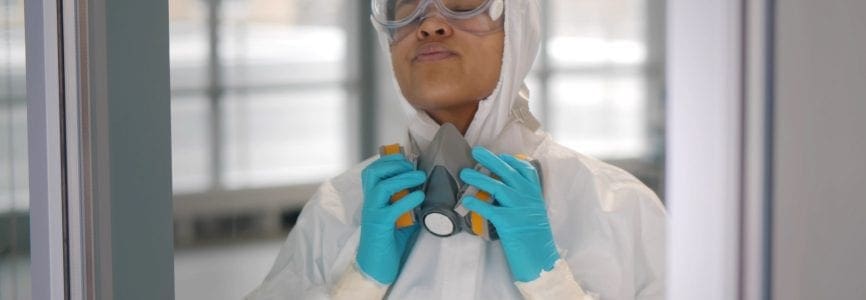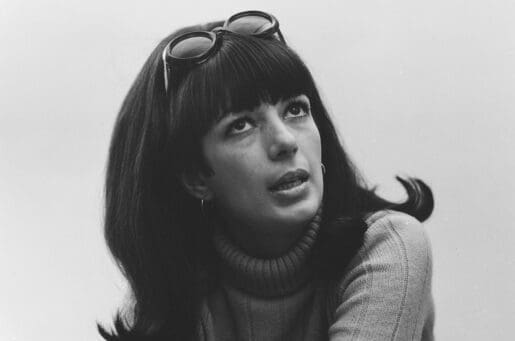Bioethics Forum Essay
A Doctor Confronts the Burden of Judgment during the Pandemic
Is it wrong for doctors to judge their patients’ choices? I have reflected on this question while being on the frontline of the Covid-19 pandemic in New York City. Health care professionals are trained to serve patients and the community without expecting much from them in return. In the current moment, however, reciprocity is of paramount importance. The pandemic has reminded us that we all breathe the same air, forcing us to recognize the reality of our interrelatedness and mutual obligation to protect one another. In my personal life, I might be justified in judging people who ignore their civic duty to curb the spread of Covid. In my role as a physician, however, I cannot so easily disregard those who do not share my values. My professional duty compels me to reckon with the burden of my judgment, which I worry can undermine interpersonal connection—one of the most meaningful aspects of patient care.
I recently saw a patient whom I struggled to understand. Without providing a rationale, he refused a routine Covid nasal swab intended for all newly admitted patients. As a result, he had to be regarded as potentially Covid-positive, requiring us to utilize more PPE and assign him a scarce isolation room. His refusal was anathema to me, but I knew it would not be right for us to turn him away. This patient needed our medical attention, but we also needed his consideration and cooperation.
Do patients and the public also have duties? Usually, when patients don’t follow their doctors’ advice, they are primarily the ones who bear the consequences. But we are all affected when citizens don’t follow public health guidelines. Health care professionals have emerged as the collective conscience of the country, appealing to their fellow citizens to embrace social responsibility and modify their behavior. Behind some of these heartfelt appeals is exhaustion and worry. There is also anger and resentment.
Recently, my mother-in-law and I were discussing a news story about individuals who doubted established facts about Covid. “If they don’t believe in science,” she quipped, “then why do they come to the hospital for treatment?” Her judgment of those she didn’t understand was natural, but I worried that succumbing to such feelings could make us unrecognizable to ourselves. Should we treat patients who contract Covid by attending large weddings or through leisure travel any differently than those exposed in their roles as essential workers? Patients sometimes make choices we would not make for ourselves, but the care they deserve is not contingent on how virtuous or responsible we consider them.
I faced a familiar sense of anticipation last fall when cases started to rise again and some wards transformed back into Covid units. I was distraught about having negative feelings toward groups who were disregarding public health recommendations. My anger at the anti-maskers I saw rallying on television was visceral, but it felt impersonal. I worried about how such feelings could affect my interactions when face-to-face with patients who might hold those very beliefs. On one hand, these were people with whom I needed to develop a therapeutic relationship based on mutual trust. On the other hand, I thought some of them must be dangerously inconsiderate and selfish.
I recall mulling this over before I saw a patient with Covid from Rockland County, a local hotspot at the time. She was an Orthodox Jewish woman in her 50s and had developed symptoms about a week after the Jewish holidays. She was friendly and eager to talk during my morning rounds. My patient hypothesized that she had contracted Covid after spending the holidays with her extended family. This included her 75-year-old-mother, who was volunteering in a synagogue where a rabbi had tested positive. It hadn’t occurred to my patient that her mother could be the source of the virus.
I heard not only regret in my patient’s voice, but also genuine surprise. She had not taken the coronavirus seriously, having heard it was similar to the flu. Her Covid story was not about selfish individualism or malice towards people. It was about family and community. It was also about misinformation.
That week, I made sure to ask my patients about their Covid stories. I heard similar things from those who admitted to having disregarded public health guidelines–lack of awareness, naive optimism, and occasionally some colorful conspiracy theories. What I did not hear was a desire to harm others. Locating a unique, personal story behind each patient helped challenge my assumptions about their motivations and their choices. It also made me question if my judgment was affecting my ability to be the kind of doctor I wanted to be.
Among many obligations, physicians have a duty to provide care without discrimination. A corollary to this is our duty to reserve judgment, as this can give rise to bias or indifference. Judgment can lead to an erosion of empathy and prevent us from searching for common ground. Putting aside our feelings is a big ask, but I don’t think it constitutes empty idealism. As physicians, we rely on our professional judgment when making diagnoses and recommending treatments. Judgment entails making final decisions. This is helpful in clinical contexts, but decisiveness of this kind does not help us understand our patients. The guilt of my judgment motivated me to replace it with compassion. Compassion is a professional virtue that compels us to act in the best interest of patients. It also makes our work personally fulfilling by fostering mutual connection.
The coronavirus pandemic represents an opportunity for us to reflect on the kind of clinicians we aspire to be, especially when the public may test the limits of our forbearance. Challenging our assumptions about people’s choices does not mean we absolve them of their responsibility to others. Rather, searching for their redemptive qualities when our values seem to be in conflict can be an act of self-preservation. I realized that judging my patients’ decisions does not nourish the moral attitude I aspire to. It does not serve me in my day-to-day work and only further demoralizes me. Moreover, the rifts created by judging others can alienate us and impede our ability to promote public health engagement.
F. Scott Fitzgerald expressed some necessary optimism in The Great Gatsby when he wrote, “Reserving judgements is a matter of infinite hope.” In the months to come of the pandemic, I will aspire to regard my patients nonjudgmentally and unconditionally. Though I may not always be able to set aside my judgment, I hope to at least dignify our relationship by listening for the human dimension in their stories. This will require extending some grace to both my patients and to myself.
Krishna Chokshi, MD, is an assistant professor of medicine in the Division of Hospital Medicine at The Mount Sinai Hospital in New York City and is the author of Thinking Through Gandhi: Gandhi’s Ideas and How They Can Still Inspire. @KrishnaChokshi












